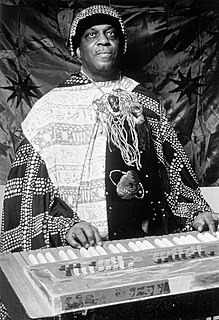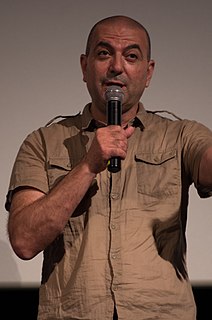A Quote by Sri Chinmoy
It is music that, being the universal language, has no need to learn any particular language of the world.
Quote Topics
Related Quotes
Music is a universal language insofar as you don't need to know anything else about a musician that you are playing with other than that they can play music. It doesn't matter what their music is, you can find something that you can play together, with what their culture is. The dialect part of it comes into play, but nothing like the differentiation that language sets up, for example.
Nature is a language and every new fact one learns is a new word; but it is not a language taken to pieces and dead in the dictionary, but the language put together into a most significant and universal sense. I wish to learn this language - not that I may know a new grammar, but that I may read the great book which is written in that tongue.
UG [universal grammar] may be regarded as a characterization of the genetically determined language faculty. One may think of thisfaculty as a 'language acquisition device,' an innate component of the human mind that yields a particular language through interaction with present experience, a device that converts experience into a system of knowledge attained: knowledge of one or another language.
Politics is different than movies. Politics are controlled by leaders. Leaders of every country have different interests. And they try to explain to their people why they should take one side or the other side. But in the movie its doing the opposite. It allows you to have a Universal Experience. You don't watch it as politics but as a movie. You don't have different reactions all over. It's so universal a language. It's not a political language serving a political agenda. The language of cinema is a world language. With the Hollywood movie, it brings about the same reaction wherever it goes.
Poetry cannot be translated; and, therefore, it is the poets that preserve the languages; for we would not be at the trouble to learn a language if we could have all that is written in it just as well in a translation. But as the beauties of poetry cannot be preserved in any language except that in which it was originally written, we learn the language.







































